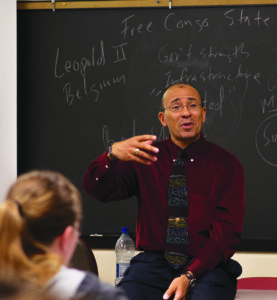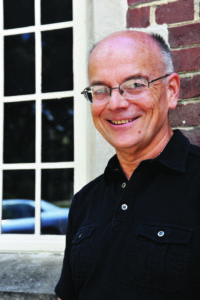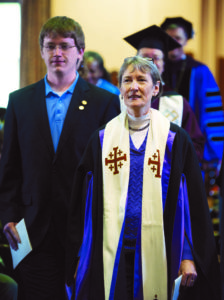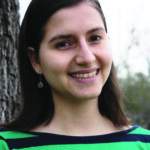For many living today in western democracies, the term “sectarian violence” conjures images of destruction between religious groups in other countries. Violence rooted in disagreements over the interpretation of religious texts and historical events. Though the specter of such violence has largely ceased to cast a shadow on the relations between various Christian communities, in mid-nineteenth century America, circumstances were very different. Persecution of minority Christian groups, particularly Catholics and Mormons, remained a source of tension.

Our founder, John G. Fee, observed sectarian divisions within Christian denominations and the disruptive consequences that ensued throughout his life in ministry and education. Determined to prevent the Berea community from such divisions, Fee established the College on the principle of an inclusive, non-sectarian Christianity united under the person of Christ rather than on teachings about him. This gave Bereans the freedom to hold diverse views and the right of private interpretation. Fee’s principle of inclusive Christianity remains the basis of the commitment to free expression and impartial love that the College promotes today in all matters of faith.
Dr. Jose V. Pimienta-Bey, associate professor of African and African American studies, was raised as a Lutheran with a Catholic father, an Anglican mother, and a Muslim uncle, an upbringing he says helped him to see similarities in religious principles that may appear different on the surface. “You can find Christian principles and values in most other religions and traditions around the world—they are universal,” he says. Therefore, even though he identifies himself as a believer in Christ, he also values the principles and traditions of other religions, an attitude that exemplifies the ideal of inclusive faith and impartial love. Berea’s motto, “God has made of one blood all peoples of the earth” (Acts 17:26), recognizes the connection of peoples regardless of ethnicity, culture, or religion. And it is this same ideal that leads the College to engage students in discussions of faith through its General Studies course dedicated to the Understandings of Christianity.

“Understandings of Christianity,” commonly referred to as GSTR 310, has been offered at Berea in its present form since 2004. According to Dr. Steve Gowler, associate professor of general studies, the course is designed to guide students toward building a community in a way that honors both the college’s historical background and its commitment to promote Christian ethics and values. “It’s one of Berea’s Great Commitments, and so it is the College’s responsibility to help students come to fuller understanding of Christianity and Christian ethics.” Alongside Christian ethics and values, one of the main goals behind the course is to show students how Christianity is immensely diverse and greatly intertwined with other religions, a characteristic that is sometimes forgotten, says Gowler.
Currently, the course is comprised of several sections that cover a wide range of topics including love, racial relations, Christian ethics, music, gender, and their relationship with Christianity. This educational framework emerged through several stages of development.

According to Rev. Loretta Reynolds, college chaplain and assistant professor of general studies, the course used to be given through a uniform syllabus and a common textbook before it was broken into several sections with different topics. Reynolds says that the new approach meets students’ and professors’ different interests. Similarly, Pimienta-Bey attests to the importance of the course and its diverse set of topics. “Because Christianity influences many aspects of society, there should be several topics that explore these various aspects,” he says.
Reynolds, for example, focuses her course on women. “The issue of women in religion has always been my interest since I myself am a woman in ministry. When I started teaching this course, there needed to be a stronger focus on the challenges for and the contributions of women in Christianity,” she says. Similarly, Pimienta-Bey focuses his course on race due to Christianity’s “great impact on racial relations,” while Dr. Gowler explores Christian ethics in a course subtitled “Poverty, Peace, and Politics.”[/text_output][text_output]Reactions to the course are quite varied among both students who have taken it and those who have only heard about it from friends. Marzia Hasanzada ’16, an economics major with a Muslim background reflects that she was not apprehensive, afraid, or angry about taking the course, but was interested in learning about religions that were different from Islam, “I was most interested in seeing the comparison of how women were treated in the two religions.” Reflecting on her experience while taking the course, she says, “what I have learned in the course that I had not known previously was the diversity in Christianity, which has surprised me.”

Erica Berejnoi ’16, a business major, on the other hand, comes from a Christian background and had expected the class to explore different religions with a focus on Christianity. “We studied Christianity thoroughly but also learned briefly about other religions,” says Erica. “As a Christian, I have also learned a lot of things I did not know about my own faith.”
Not surprisingly, the course also generates some trepidation for some students. “Mostly, students come in not feeling sure about what is going to happen,” explains Dr. Reynolds as she recounts student reactions to the course. “I have had experience with both sides: from people who are angry or anxious about taking the course because they are not Christian, and from people who are afraid that their Christianity is going to be taken away from them.” In order to reduce these anxieties, professors try to make it clear that the course is not an attempt to impose a single religious understanding onto the students. Instead, in an effort to promote inclusive Christianity, professors encourage students to appreciate and think critically about various perspectives that exist within Christianity. For this purpose, most professors require their students to visit churches whose beliefs or traditions are different from theirs. After each church visit, students write reflections about the experience, examining the church’s liturgical practices, doctrinal beliefs, architectural choices, and other aspects. The reflections allow students to think about how their new experience compares and contrasts with their own tradition.
GSTR 310 indeed focuses on Christianity; however, its purpose lies in demonstrating how, even within a single religion, there are manifold beliefs with similar core values that tie all walks of faith together. Dr. Gowler, echoing this point, states: “That this course promotes inclusive Christianity is implicit in its title … signifying that there is a plurality, even among Christians. This course addresses issues that cut across all religions and levels of human experience.”
As Caroline Arthur, ’16, sees it, GSTR is one way “Berea has created a community of students who are not only eager to learn, but eager to serve each other and their community.

While GSTR 310 may be titled ‘Understandings of Christianity’ I think more students gain a better understanding about their own faith and beliefs in the process. What you learn in the classroom extends far above any words you might write on an exam, and emphasizes the core values rooted in our college. Christian faith or not, these values are ones that I and many other students of many different faiths are proud.”

